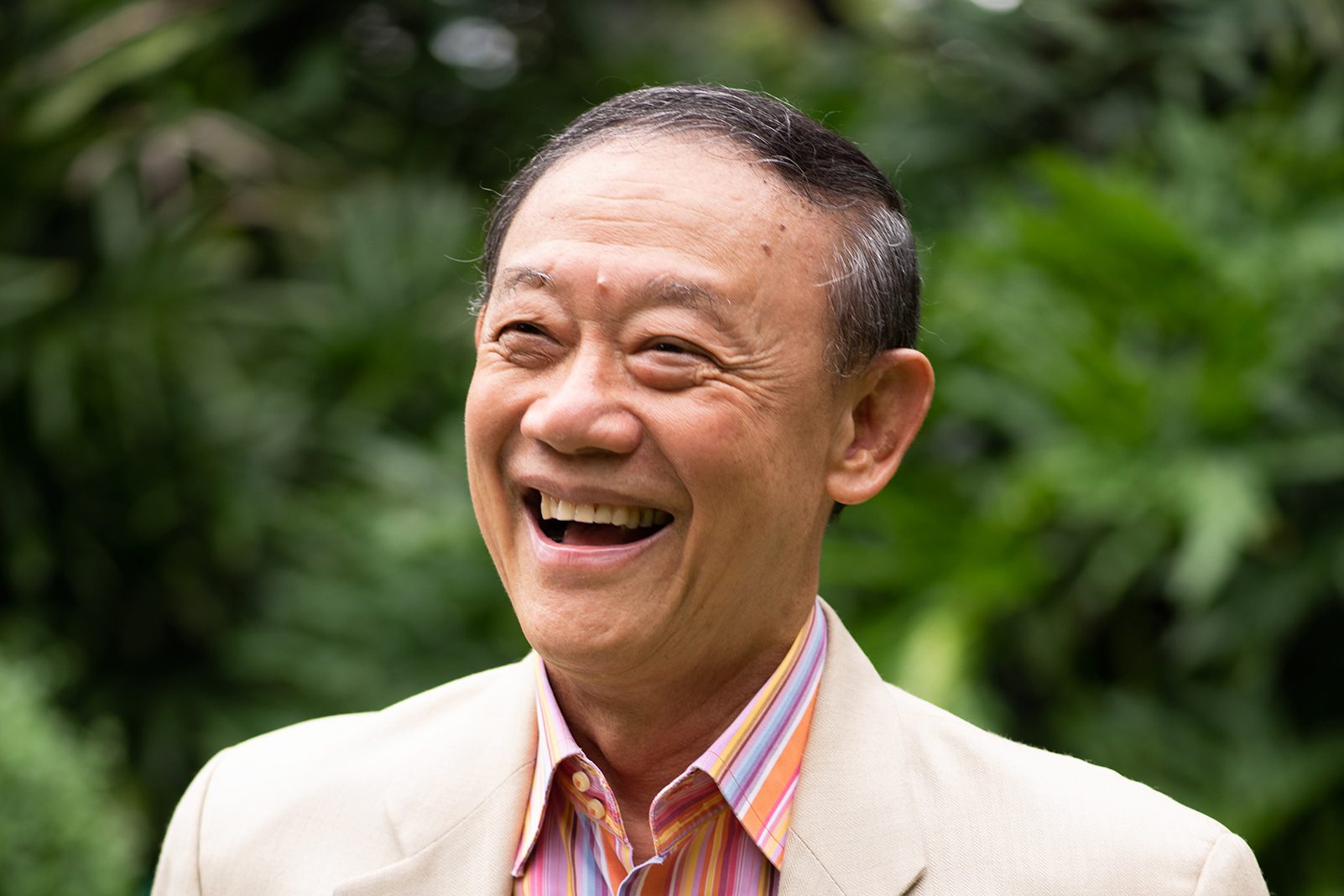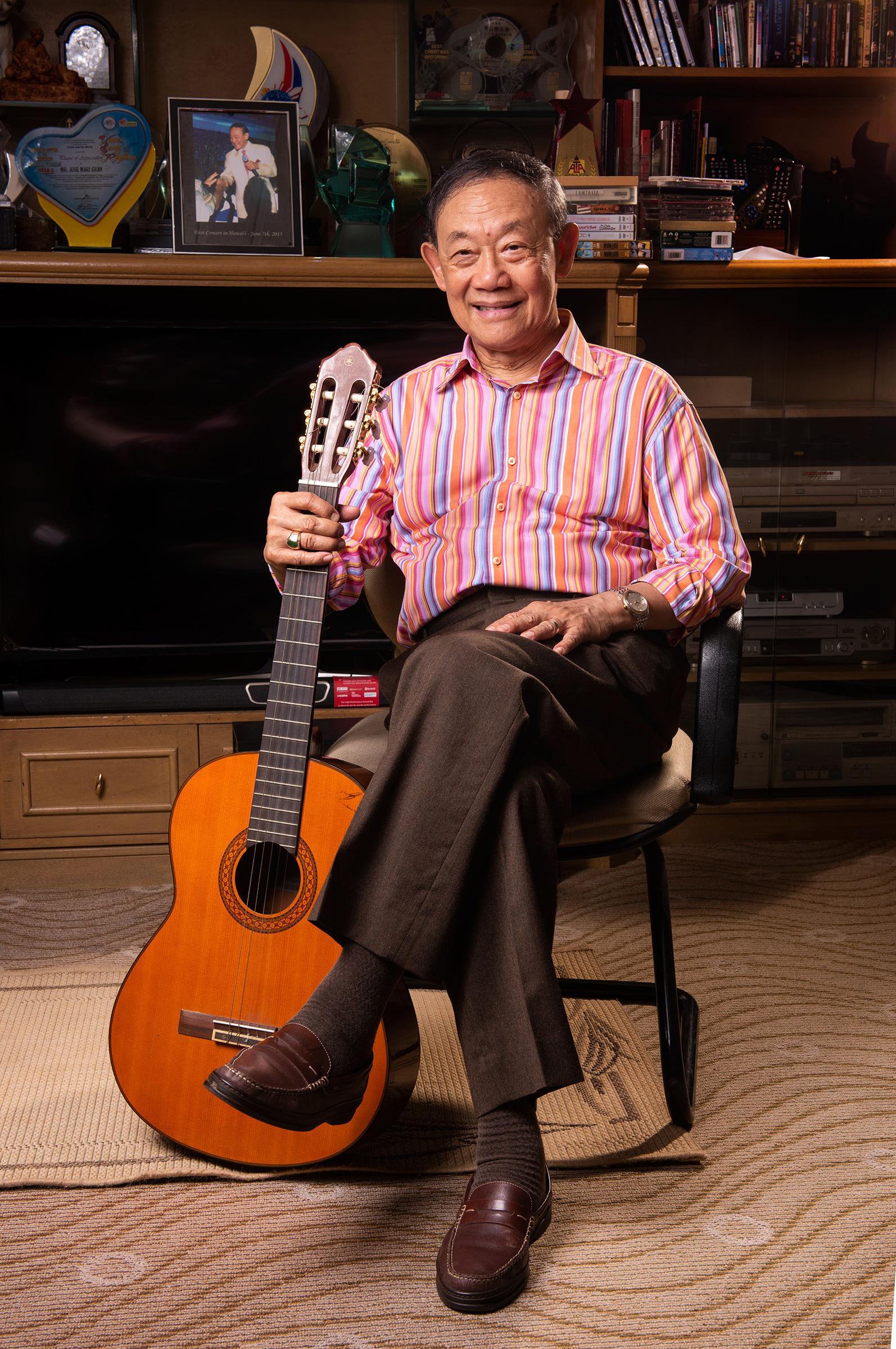
Every year by September 1, the Internet in the Philippines teems with memes of a septuagenarian, ethnically-Chinese man. Posts typically feature variations of him peeking into frame. His appearance unofficially marks the start of the country’s lengthy holiday season, colloquially known as the “Ber months.”
The face peering out is that of Jose Mari Chan, a Philippine sugar business owner whose icon status has earned him the local moniker “Mr. Christmas.” Whereas Mariah Carey’s voice may ring in the winter spirit in America, it’s Chan’s carols that have, over the past few decades, become ubiquitous throughout the final four months of every year in malls, restaurants, karaoke bars, and radio broadcasts across the archipelagic Southeast Asian nation of 110 million people.
Read More: The Surprising Origins of 5 Christmas Traditions
Chan, who considers himself “first a businessman, and second a singer-songwriter,” has held a lifelong love for music. Even though he had to prioritize the sugar business he inherited, he simultaneously pursued a career as an artist, releasing his first album in 1969 when he was in his early twenties. Throughout the ’70s, Chan, who is recognizable for his warm tenor, became one of the country’s most renowned balladeers and composers, producing more albums, many TV and movie soundtracks, and several popular commercial jingles.
In 1975, after the Philippines’ notoriously corrupt authoritarian leader Ferdinand Marcos Sr. “nationalized the sugar industry in all but name,” according to the New York Times, which triggered a sugar crisis in the country, Chan and his family moved to New York to pursue the family business in America. When Marcos Sr.’s dictatorship fell in 1986, they returned—and Chan, with new music, made a comeback on the airwaves.
But it wasn’t until 1990 that Chan would record the song for which he has ultimately become most famous. He wrote it as a duet, and originally, he says, he had wanted Lea Salonga—who at the early stages of her illustrious career was already an award-winning Filipino actress and singer—to perform it with him. When label contracts prevented them from working together, however, another singer was lined up. But then that replacement developed a hoarse voice before getting to the studio. In a pinch, his then-teenage daughter Liza stepped in. “Christmas in Our Hearts” went on to become a sensation: the father-daughter duo have since performed it around the world, and the album it appeared on (with the same name as the single) is among the country’s all-time bestsellers. Just this year, Grammy-winning American pop a cappella group Pentatonix covered the song, featuring Salonga, on their latest holiday album, a collaboration that Chan says brings the hit “full circle” to its origin story.

Today, Chan, now 77, takes his massive seasonal popularity in stride. He’s aware of the memes, and when people of all ages ask for selfies with him on the street, he’s happy to oblige. “I don’t have the heart to say no,” he tells TIME. “I don’t want to appear arrogant.”
One thing Chan is not so comfortable with is the nickname he’s been given: “Mr. Christmas.” As a devout Catholic—which is not unusual in the Philippines, where more than 80% of the population shares the same faith—he says he’d prefer for the holiday spotlight to remain focused on God. “This season may we never forget the love we have for Jesus” is even a refrain of his most popular song. If you must, Chan insists, you can instead refer to him as the “Little Drummer Boy.” (His friends just call him Joe Mari.)
Chan credits divine intervention for his musical success—he’s received multiple lifetime achievement industry awards—particularly when it comes to “Christmas in Our Hearts.” He recalls a producer lamenting at the time of recording that it “sounded too much like a Christian song” to become a mainstream chart-topper. But that didn’t concern Chan; he tells TIME he has always believed “the hand of the Holy Spirit was on the song from the very start.” In fact, it was no coincidence, he suggests, that the arranger, Homer Flores, has the same initials that stand for the Holy Family (Jesus, Mary, and Joseph).
Still, as religious as he is, Chan is no stranger himself to the increasing commercialization of Christmas, which has been taking place in the Philippines just like everywhere else in the world. Chan is a brand ambassador for Shopee, the regional giant in online retail, as well as for IKEA, among other companies. After all, he’s still a businessman first, he reminds. And he doesn’t mind encouraging consumer spending “if it helps bring in the Christmas spirit.”
But unlike with his advertising work, or his sugar business or real estate investments, Chan claims he’s not primarily interested in profit for his holiday tunes. He would love for his lyrics to spread far and wide, even if, he suggests, in many years, people eventually forget the man who wrote them. “With my Christmas songs,” he says, “I’m in it for the goodwill, and for the joy that people have in their hearts when they sing.”
More Must-Reads From TIME
- The 100 Most Influential People of 2024
- Coco Gauff Is Playing for Herself Now
- Scenes From Pro-Palestinian Encampments Across U.S. Universities
- 6 Compliments That Land Every Time
- If You're Dating Right Now , You're Brave: Column
- The AI That Could Heal a Divided Internet
- Fallout Is a Brilliant Model for the Future of Video Game Adaptations
- Want Weekly Recs on What to Watch, Read, and More? Sign Up for Worth Your Time
Contact us at letters@time.com